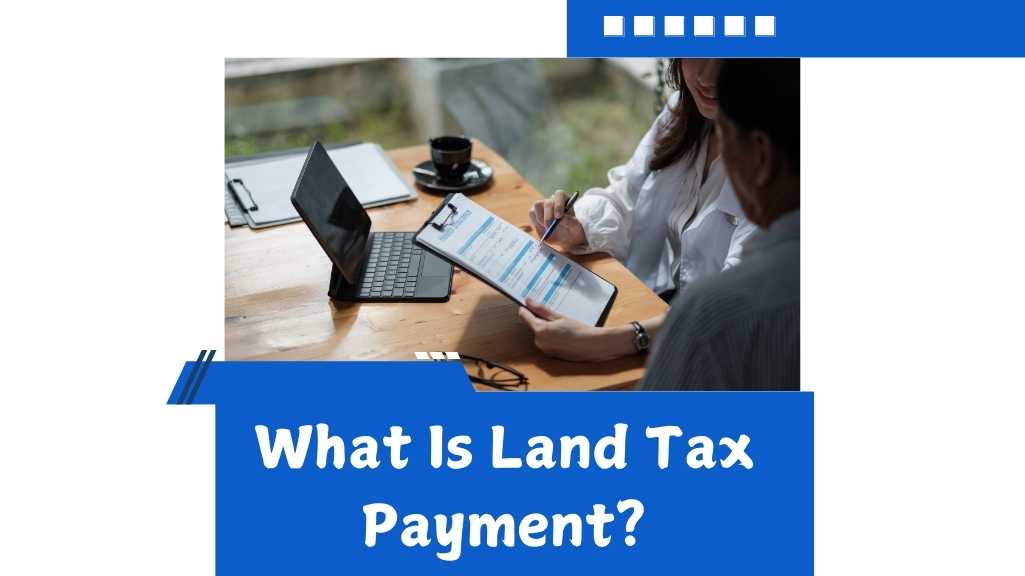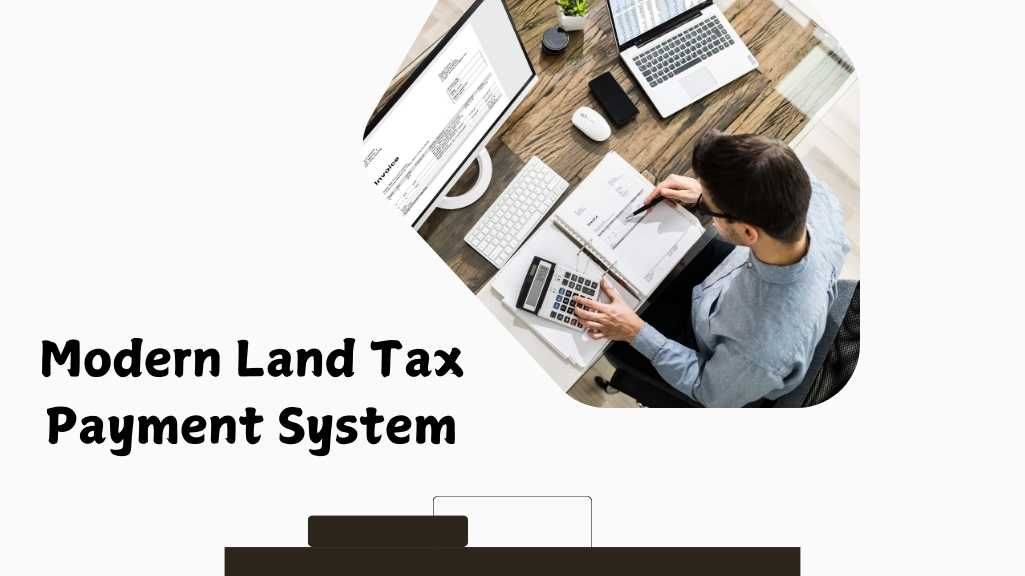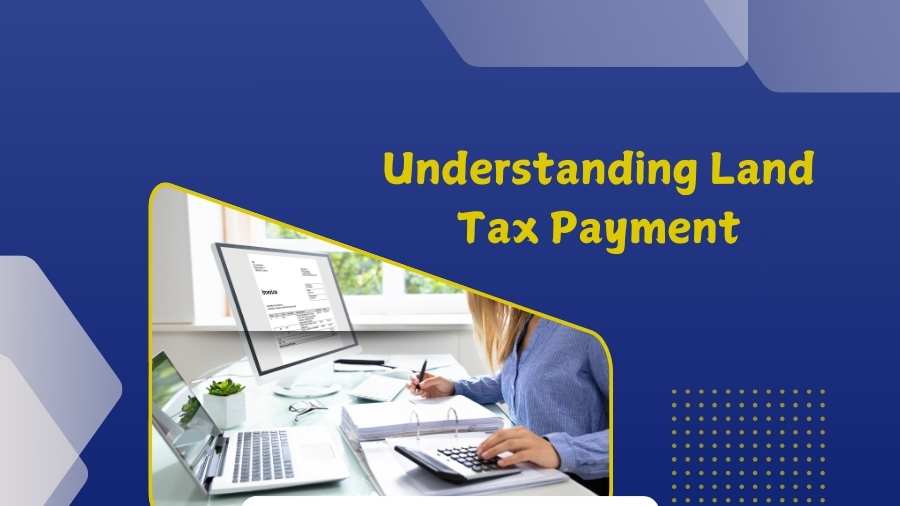Payment of land tax is an important feature of the ownership and management of properties in Pakistan. As a result of the implementation of modern administrative mechanisms, specifically the application of new information technologies, it has become essential to understand how the system of payment of land tax functions. This article aims to describe the payment of land tax in detail, and it also covers the topic of its relevance to Pakistan in the contemporary world, the current system of payment of land tax in Pakistan, and adopting the novelties in the end, including the change in the working procedure in terms of shifting towards the online method of payment.
Table of Contents
What Is Land Tax Payment?
The other one is the land tax that is a government owned tax levied on the owners of land depending on the size or value of the land. This tax plays a vital role of generating revenues for most local and provincial governments. The collected revenue is used in financing of services, facilities, and other administrative expenses hence form a key factor in management.

The Role of Land Tax Payment in Contemporary Politics
Revenue Generation:
- Some benefits of land tax include; Current revenue: Land tax is a current, stable source of direct taxation that allows provincial and municipal governments to provide infrastructure, services like roads, schools, public health, etc.
- Encouraging Responsible Land Use:
Through taxation, governments ensure that the land is put to productive use to avoid embracing or occupying attractive and productive fertile farmland or valuable urban plots.
- Property Ownership Regulation:
The payment of land tax means that records of the property owners are regularly updated, this in a way reduces cases of disagreements and fraudsters.
- Contribution to National Development:
Yield from land tax is afforded to enhance the economic integration of Pakistan by providing housing schemes and infrastructural enhancements.
This paper explains how the land tax payment system works in Pakistan.
Traditional System of Payment of Land Tax
Manual payment was the common approach used to handle the payment of the land tax in Pakistan earlier. The ratepayers had to physically go to the Patwar Khana to get information about their liabilities and then pay the amount themselves. The revenue officials include the Patwari (village accountant) who was responsible for being in charge of taleemat, or land records, computing and collecting taxes, and helping in the distribution of payments.
However, this traditional system had its challenges:
- Lack of Transparency: Records made were in a manual manner and therefore very easy to manipulate and contain many errors.
- Corruption and Delays: The farmers were subjected to extortion and had to pay many hustles where they had to be forced to get their issues resolved or just have the records changed.
- Limited Accessibility: Farmers lived close to state revenue office, but the access and clock indicated that collection of taxes was difficult.
Modern Land Tax Payment System: A Shift towards Digital Principles
Digital land tax payment is among the few areas that have benefited from the introduction of digital platforms in Pakistan. Most of the provincial governments some even have adopted the use of e-governance to increase productivity, accountability, and accessibility. Below is a nervous breakdown of the key improvements:

1. Zonal/Municipal Land Records now present online
Even the provinces of Punjab, Sindh and Khyber Pakhtunkhwa have developed online land records to provide easy access to the taxpayers to information required for paying their taxes.
- Example: Through the online Punjab LRMIS, one can crosscheck ownership details, tax payable and history of the payment made to the government.
- Benefits include:
- Continuous access to records during working days and during emergency situations.
Reduced cases of intermediaries and corruptions cases.
2. Online Tax Payment Platforms
Landowners can now pay their taxes online using platforms such as:
- E-Pay Punjab: This is a mobile application through which users can make payments for land taxes, property taxes as well as other fee levies.
- Sindh Peoples Revenue Portal (SPRP): Services it provides includes payment of tax receipts and property confirmation among others.
3. They should be integrated with banking and mobile apps.
Tax procedures can be made secure, easy, and quick through online banking, and most mobile wallet-knowing services such as Jazz Cash and Easypaisa integrate with the government tax platforms.
4. Automated Alerts and Updates
The tax due and payment reminders for the registered landowners are in the form of short message service or emails in case of online registration.
How to Pay Land Tax in Pakistan: Step-by-Step Guide
- Verify Land Records:
To view ownership records and balances due on a piece of property, go to the provincial land record database.
- Calculate Tax Amount:
Internet-Based Tax Calculator or consult the Patwari for the ,arising amount payable with respect to the size, category and location of the Land.
- Choose Payment Method:
- Online Payment: Engage in e-governance such as; E-Pay Punjab.
- Bank Payment: Pay the tax amount to the recognized banks.
- Manual Payment: Stop at the local revenue office.
Obtain a Payment Receipt:
It is also important that you get a sign of payment as a reference whether it be on an email or hard copy of a receipt.
Problems Facing the Philippine Government in the Implementation of the Land Tax Payment
Despite advancements, some challenges persist in Pakistan’s land tax system:
- Lack of Awareness: A majority of the rural landowners have no information on the digital payment instruments.
- Connectivity Issues: Remote areas Internet and mobile access is quite restricted.
- Resistance to Change: The change from the conventional forms of training to the modern technological interfaces needs time and training of the stakeholders.
Increased Focus on Digital Literacy:
Banner advertising has been used to sensitive owners of land to make payments using online platforms.
- Transparency Measures:
Fighting fraud and enhancing data accuracy in record-keeping has led to considering the application of blockchain in record-keeping for land.
- Simplification of Tax Rates:
Uniform taxes levied on the basis of land classification into productive, business, and residential among others have helped in computation of taxes by the land owners.
- Mobile-Friendly Platforms:
Improved interfaces of the applications make it possible for any user of the interface, even a new one, to be able to handle it in the simplest way possible.
Advantages offer by the online Tax payment for land.
- Convenience: A landowner can pay taxes without moving an inch and doesn’t have to visit revenue offices.
- Reduced Corruption: Automation minimizes the involvement of individuals and helps to have a fair process.
- Record Accuracy: The digital platforms reduce cases of errors that may be found in the tax records.
- Time-Saving: Payments go through within the shortest time possible, thus sparing much time for both landowners and officials.
Conclusion
Actually, payment of land tax is one of the fundamentals of property holding as well as contemporary governance in Pakistan. Perhaps the conventional system was not ideal because the digital process has brought efficiency, credibility, and ease to the process. Through the optimization of technology features, the ownership of land can develop accurate and appropriate tax obligations, which improves the nation’s development.
It is for this reason that: This knowledge and appreciation of land tax requirements and compliance serves the interest of every single person in the society. With the increasing trend of going digital in Pakistan, the general public must start acquainting itself with this new form and make use of the new systems.
FAQs:
Q1. What is the fine for not paying land tax on time in Pakistan?
Failure to pay on time may attract a penalty or fine depending on province set standards.
Q2. Is it possible to pay land tax in installments?
The provinces mentioned have developed policies that allow installment payments to be made in special scenarios. It is recommended that you contact your local revenue office.
Q3. How can I know if the land tax payment has been updated?
The website that is available at the provincial level for the land records can be consulted or you can visit the revenue office of your province.
Q4. Is a land used for agricultural purposes free from tax on land?
There are provinces where agricultural lands have lower taxation and or are even exempted based on their usage and area.
Q5. It is often obvious that the offices responsible for land tax collection are likely to be interested in all manner of information relating to inherited properties, including: ‘Is the payment of land tax compulsory?
Indeed, taxes are admissible unless any exemption is provided for. The property must be registered on the correct ownership in order to avert legal complications.
Thus, by keeping yourself updated and also using technological advancement you can easily navigate through the land tax payouts and other legal formalities.

